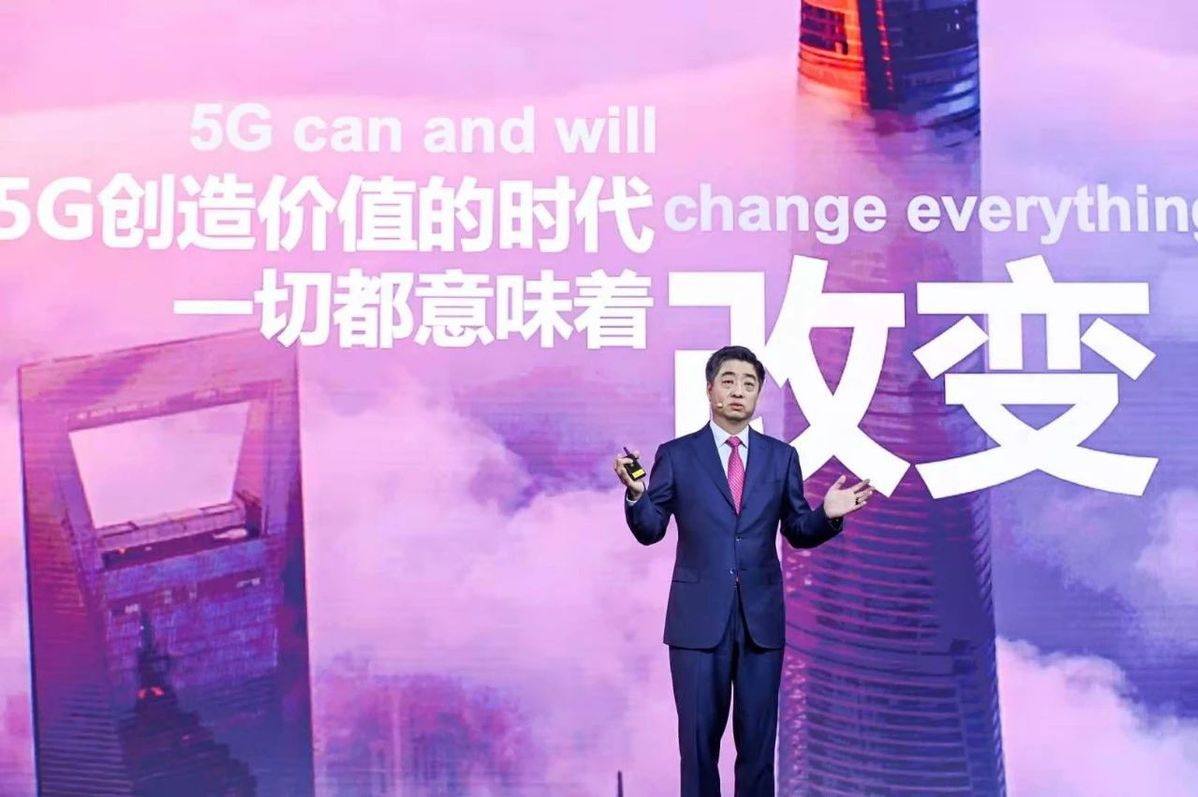Huawei highlights efforts to deliver the new value 5G creates for industries
By Ma Si | chinadaily.com.cn | Updated: 2020-11-13 13:15

More efforts are needed to focus on real needs in industrial scenarios, as 5G technologies are creating new value for industries and new growth opportunities, a senior executive from Huawei Technologies Co said.
Hu Houkun, deputy chairman of Huawei, said as 5G is poised to transform the way we live, connect, and work, the telecoms sector is deeply invested in creating more value beyond the consumer market.
"There's no out-of-the-box approach to innovation," said Hu on the topic of accelerating 5G application in industrial settings. "We've got to focus on real needs in real scenarios – and build up the capabilities to meet those needs. This is a challenge. But more importantly, it's a huge opportunity for everyone involved."
Hu made the comments at the ongoing Annual Mobile Broadband Forum which will conclude in Shanghai on Friday.
The comments came as global 5G rollout is progressing quickly. As a leader in this domain, China has already deployed over 600,000 base stations in more than 300 cities, supporting more than 160 million 5G connections across the country. A wide array of 5G services have already been implemented in more than 20 domestic industries, including healthcare, ports, steel, power grids, mining, and manufacturing, Hu said.
"The adoption of 5G in industries has moved from technical verification to commercial deployment," Hu noted. "As of September 30, 2020, China's three major operators have implemented over 5,000 innovative 5G projects and signed over 1,000 5G business contracts."
While expressing his full confidence in 5G's promising future with industries, Hu noted, "There is no such thing as a one-size-fits-all solution, because every industry has vastly different requirements."
The senior executive shared four observations on the best ways to drive 5G innovation for industry applications. First, the industry needs to identify real needs based on specific business scenarios. Second, networks need to adapt to different scenarios.
Third, a thriving industrial 5G device ecosystem is key. Huawei said it estimates that the average price of 5G modules will level out at around $100 by the end of 2020, and hit $40 by the end of 2022, which will greatly enrich the 5G device ecosystem.
Fourth, telecoms operators need to develop new capabilities to serve business-facing 5G markets, Hu added.
"5G will create increasingly greater value for industries over the next decade," Hu said. "This means another period of rapid development for the telecoms industry. Moving forward, we will have to overcome a number of difficulties, and every step forward requires change. But I firmly believe that the hardest things are the things worth doing most. Because when you succeed, the results are incredible. We are ready and willing to work with operators, our enterprise customers, and industry partners to push the boundaries of innovation and build a better future for everyone."
























